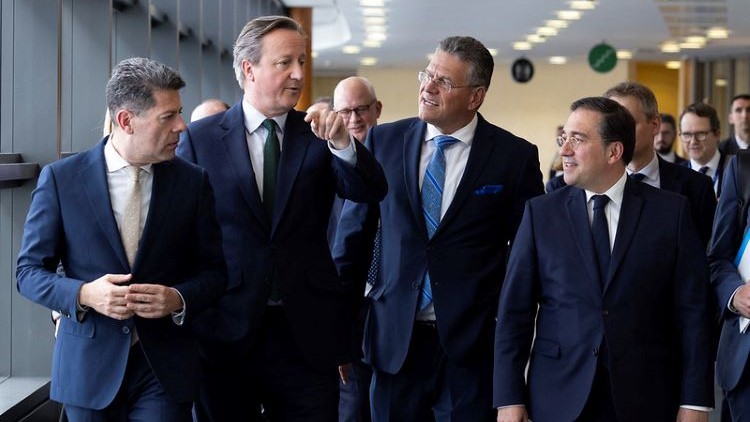Alba Córcoles
The founder and president of the Spain-Israel Chamber of Commerce and Industry, Gil Gidrón, considers that “the war in Gaza will have cost 230 billion euros by the end of 2025”, at which time he hopes it will be over.
Gidrón, who participated in a debate titled “The Day After: Questions and Answers,” organized by the non-profit organization Keren Hayesod, the main fundraising arm for the Jewish community, said that “the daily cost of conflict is 270 million euros, but Israel works very well under stress and recovers very positively.”
The dialogue, which took place in the auditorium of the Pérez-Llorca office, was moderated by former PSOE deputy Juan Moscoso del Prado, economist, financial consultant and expert in international economic relations. And it had the participation of Gidron, Juan Carlos Girauta, lawyer, journalist and former leader of Ciudadanos; Roni Kaplan, spokesperson for the Israel Defense Forces for the international Spanish-speaking press; by Mercedes Levy, psychotherapist; and Pilar Rahola, journalist and media analyst.
In the debate, the future of Israel after the war was analyzed, about which Roni Kaplan pointed out that “it is a long campaign that may have a year or two left.”
The meeting reviewed sensitive issues for the Jewish population such as “the continuity of clichés, Judeophobia and anti-Semitism still latent in the international community,” said Girauta; or “the plausible symptomatology of post-traumatic stress in the Israeli population,” Levy pointed out.
From the point of view of Israeli captain Roni Kaplan, its main objective is the fight against terror. “Due to certain characteristics such as the size of the country or the costs involved, Israel usually prefers to fight short wars,” explained the military officer. However, he stressed that in this case, “Israel must be able to combat any type of terrorist threat emanating from the territory of the Strip, no matter how long it takes.” Given this, he admitted that he is not considering granting any ceasefire without the unconditional surrender of Hamas, justifying that “not only do we have the right to put an end to Hamas, we also have the duty to do so.”
For his part, Gil Gidrón highlighted as one of the main challenges for the recovery of the Israeli economy the loss of primary labor for activities such as construction, carried out mainly by Palestinians. To close the session, Rahola warned that “the Moscow attack may have been the baptism of terrorism back in Europe.”







